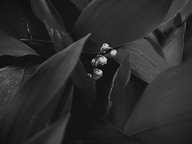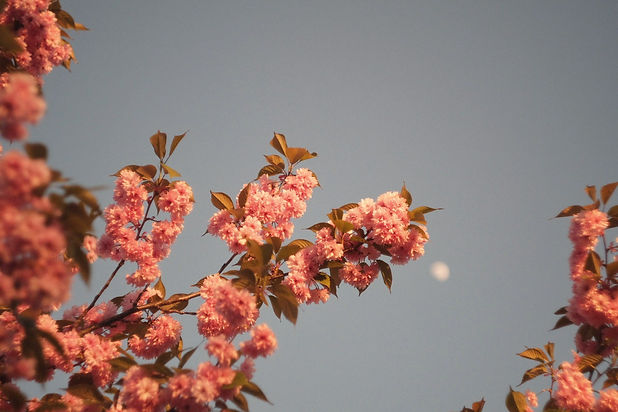There is no way David Lynch didn't read W. H. Auden.
- Lauren Jane

- Jun 28, 2025
- 4 min read
Updated: Jul 2, 2025
cw: sexual threats & assault
A little while ago, I was reading about hope.
I was coming to terms with a sudden but cumulative crisis of post-trauma stress. A lifetime of compensation for CPTSD shattered around me, reduced to rubble, trapping me inside it. Like wearing a skin made of broken glass. Among other severe stressors and traumas, I was being targeted by online alt-right hate groups who bombarded me with violent, graphic threats. My body believed every single one. Every description of rape that hit my inbox also ripped right through my nervous system, I spent weeks triggered into nearly endless flashbacks of my original violent assault as a child. I was more viscerally aware every day how disordered my mental health was becoming.
At the same time, I was witnessing the world around me strip away its moral character for cruelty by embracing many of the same principles as the ones informing the ongoing online harassment I was experiencing. I started reading about hope out of desperation. I was looking for a theory of hope that could help me tie together these scales of grief I find difficult to reconcile and begin a path to recovery.
Trauma recovery implies a certain level of self-involvement - as does learning to make kindness and gentleness an instinct after over twenty years of negating your own deep emotional needs to function after violence, but I struggled with the balance of this self-investment to honour myself after decades of my own pain - how does one do that and still honour the wounds of the world, especially when it's so easy to feel powerless.
I abruptly left a successful career to study my own recovery and explore new methods for living in the world; I have no plans beyond rediscovering my core sense of wonder and goodness. I have the remarkable support of family and friends and an intense will to do what is right, to create the conditions for goodness with my choices. But I do this in the context of a world rapidly falling into moral darkness, where the will of most people seems unable to influence the motions of authority. A time of oppression, violence and erasure.
Flowers taken in May / June 2025 in Toronto & Halifax
Healing, at times, feels frivolous, a waste of oxygen. But other times, with more kindness, it has meaning because trauma begs me to invert the view - when I mourn my trauma with empathy, I also mourn the world. When you are actively trapped in a triggered or traumatised state, everything is personal. While it may feel arrogant to say my suffering is a fractal of the world’s suffering, it isn't, because this is true of everyone else’s suffering as well; we all hold a part of all suffering. In our interconnected state, all suffering is ours.
In reading about hope, I found the writing of Elias Canetti, who encouraged me to “Relearn astonishment.” and stressed that when we search for the borders of compassion, we should find none. He reminded me that we exist alongside and within a world of brokenness, which is so universal it is intimate to every one of us. In this context, when I decided to saturate myself with meaning and hope, one of the first things I learned was that I had to do the same for the world around me.
Trauma has a way of collapsing time, as if a whole year, an entire terrible day 28 years ago, were all happening just yesterday, happening right now. My mental health was in tatters. I forgot entirely that I could smile or laugh, that I could see beautiful things for years, that my body could feel pleasure, that I could offer love. I was filled with cascading fear of a small, soft animal. Afraid to be alone in my house, afraid inside the former home of my mind.
The fear with trauma is that you may never be whole again, but the truth is, you never stop becoming. No one is ever whole.
In his poem, September 1, 1939, W. H. Auden wrote, “We must love one another or die,”.* This isn’t romantic love or the kind of love we seek because we didn’t receive it from our parents or caregivers; and this isn't a love you can receive if you are not prepared to give it. It isn’t romantic or redeeming. As bell hooks says, this love can only save you if you are ready to be saved. I can learn to offer the love, acceptance, and affirmation I desire but do not receive, and which I often withhold from myself.
I am learning that to love myself with kindness means engaging myself with honesty, curiosity and openness. These qualities are also the foundation of progressive dialogue within a community. Curiosity and Care are the opposite of abuse or harassment, and, again, to quote bell hooks, the foundation of love. They are my greatest tools in healing from trauma and the harm of self-harassment and destruction of self-esteem inside CPTSD; they are also skills I want to learn to offer the world. Over and over, the methods I discover for recovery are the same ones we need between us for our societies to thrive with safety.
After publishing his poem, Auden deleted two stanzas and quickly began to dislike it, seeing it as oversimplified and naive as the world unravelled into war. More than 10 years later, he allowed publication only with its most famous line altered
We must love one another and die
Perhaps this was an abandonment of hope? A disillusionment? I prefer to see it as a simple acknowledgement of reality - death has no bearing on our need for love. This need exists beyond the truth of our transience. It is a simple, honest truth all its own. Love is a need so fundamental that it is almost material: we must love one another, we need to give and receive love to live, and yet we die anyway. The only part of that we can do anything about is how much we love.





















